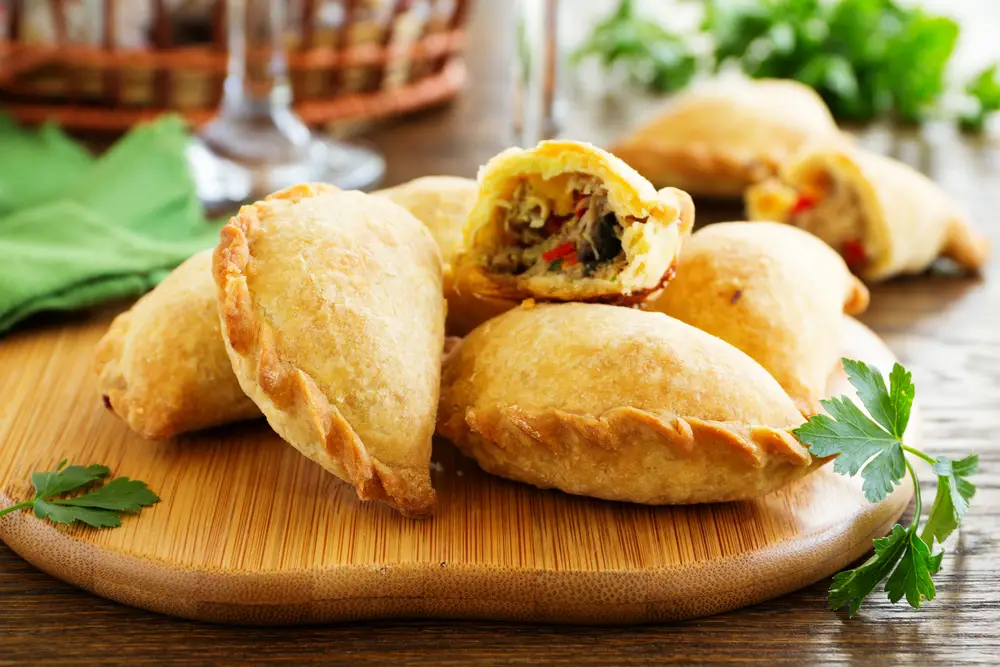Cooking is both an art and a science, and mastering the culinary craft can be a lifelong journey. While it’s true that practice makes perfect, there are countless tips and techniques that can help you become a better cook, courtesy of some of the world’s top chefs. In this article, we will explore 45 invaluable pieces of advice and cooking hacks from renowned chefs that will elevate your culinary skills and inspire your gastronomic journey.
Invest in Quality Ingredients
Top chefs consistently emphasize the importance of using high-quality ingredients. Starting with fresh, seasonal, and locally sourced produce can make a world of difference in your dishes. Renowned chef Alice Waters is a strong advocate for this, as she pioneered the farm-to-table movement.
Keep Your Kitchen Well-Stocked
Having a well-stocked kitchen is essential for any aspiring chef. Make sure you have a variety of spices, oils, vinegars, and pantry staples like rice, pasta, and canned tomatoes at your disposal. Chef Ina Garten, known for her Barefoot Contessa brand, recommends this approach to make cooking easier and more enjoyable.
Learn the Basics
Before you can become a culinary virtuoso, you must first master the basics. Chef Gordon Ramsay often advises aspiring cooks to focus on foundational skills like chopping, slicing, and knife skills. A strong foundation will allow you to tackle more complex techniques with confidence.
Get Comfortable with Your Knives
A good set of knives is a chef’s best friend. Learning how to properly care for and use your knives is crucial for efficiency and safety in the kitchen. Chef Thomas Keller of The French Laundry fame stresses the importance of knife skills as a fundamental element of cooking.
Practice Mise en Place
Mise en place, a French term meaning “everything in its place,” is a vital concept in professional kitchens. Before you start cooking, gather and prep all your ingredients, utensils, and equipment. Chef Julia Child was a strong advocate for this organized approach.
Taste as You Go
Frequent tasting throughout the cooking process is key to ensuring your dishes are seasoned to perfection. Chef Jamie Oliver recommends tasting and adjusting your seasoning at different stages to achieve balanced flavors.
Don’t Overcrowd the Pan
Crowding the pan can lead to uneven cooking and prevent your ingredients from developing a nice sear or caramelization. Chef Alton Brown advises giving your ingredients enough space to breathe.
Master Heat Control
Controlling the heat is one of the most crucial skills in cooking. Chef Heston Blumenthal suggests getting to know your stovetop or oven intimately, as different cooking methods require precise temperature control.
Use the Right Cookware
Invest in high-quality cookware that suits your cooking style. Chef Thomas Keller recommends having a few versatile pieces, such as a good cast-iron skillet and a heavy-bottomed saucepan.
Learn Different Cooking Techniques
Explore various cooking techniques like roasting, grilling, sautéing, and braising to diversify your culinary repertoire. Chef Anthony Bourdain stressed the importance of mastering different methods to become a versatile cook.
Understand Flavor Pairing
Understanding which flavors work well together is essential for creating harmonious dishes. Renowned chef Grant Achatz encourages experimenting with unexpected flavor combinations to elevate your cooking.
Experiment with Herbs and Spices
Herbs and spices can transform a bland dish into a flavor-packed masterpiece. Chef Yotam Ottolenghi advises being adventurous with your herb and spice choices to add depth and complexity to your dishes.
Balance Sweet, Sour, Salty, and Bitter
Achieving the perfect balance of sweet, sour, salty, and bitter flavors is the key to exceptional cuisine. Chef Emeril Lagasse recommends paying attention to these flavor elements in every dish you prepare.
Learn the Art of Seasoning
Seasoning is more than just salt and pepper. Chef Jacques Pépin stresses the importance of using different types of salt and exploring other seasonings like herbs, spices, and citrus zest.
Embrace Umami
Umami, the fifth taste, adds depth and richness to your dishes. Chef Nobu Matsuhisa is famous for incorporating umami-rich ingredients like miso, soy sauce, and mushrooms into his cuisine.
Know Your Ingredients’ Seasons
Using seasonal ingredients not only ensures freshness but also supports sustainable cooking. Chef Alice Waters advocates for cooking with ingredients that are in season to maximize flavor.
Learn the Art of Searing
A perfect sear can elevate meats and vegetables to new heights. Chef Gordon Ramsay emphasizes the importance of a hot pan and well-seared ingredients for developing flavor and texture.
Perfect Your Sauces
Sauces can elevate a simple dish into a gourmet experience. Chef Julia Child encourages home cooks to practice making classic sauces like béchamel, velouté, and hollandaise.
Make Your Own Stock
Homemade stock is a fundamental building block of many dishes. Chef Thomas Keller recommends making your own stock to have on hand for soups, sauces, and braises.
Master the Art of Deglazing
Deglazing is a technique where you use liquid (usually wine or broth) to release flavorful bits stuck to the pan. Chef Alton Brown advises deglazing to create rich sauces and gravies.
Learn to Bake
Baking is a science, and precision is key. Renowned pastry chef Dominique Ansel suggests mastering the basics of baking, from cookies and cakes to bread and pastry.
Understand the Importance of Resting
Allowing meat to rest after cooking ensures that the juices redistribute evenly, resulting in a moist and flavorful dish. Chef Jamie Oliver reminds us to be patient and let our creations rest before serving.
Make Your Own Pasta
Freshly made pasta has a superior texture and flavor compared to store-bought varieties. Chef Lidia Bastianich encourages home cooks to try their hand at pasta-making for a truly authentic Italian experience.
Learn to Fillet Fish
Fillet fish properly to maximize yield and ensure a bone-free dining experience. Chef Gordon Ramsay recommends practicing your fish filleting skills until they are flawless.
Don’t Fear Eggs
Eggs are versatile and can be used in countless dishes. Chef Julia Child advises mastering various egg preparations, from omelets to soufflés.
Experiment with Fermentation
Fermentation adds complexity and depth of flavor to ingredients. Chef David Chang is known for his adventurous use of fermented ingredients like kimchi and miso.
Get to Know Your Local Farmers
Building relationships with local farmers and producers can give you access to the freshest and most unique ingredients. Chef Alice Waters is a champion of the farm-to-table movement and urges you to support local agriculture.
Taste Dishes from Different Cultures
Exploring global cuisines can expand your palate and cooking repertoire. Chef Anthony Bourdain was a strong advocate for travel and culinary exploration as a means to learn and grow as a cook.
Sharpen Your Palate
Regularly tasting and analyzing different ingredients and dishes can sharpen your palate. Chef Thomas Keller recommends paying attention to subtle flavors and textures.
Cook for Others
Cooking for friends and family can be a rewarding experience. Chef Ina Garten encourages home cooks to share their culinary creations with loved ones and gather feedback.
Keep a Cooking Journal
Keeping a cooking journal allows you to record your successes and failures, helping you learn and grow. Chef Julia Child documented her culinary journey in her famous cookbook, “Mastering the Art of French Cooking.”
Practice Patience
Cooking often requires patience and attention to detail. Chef Heston Blumenthal advises taking your time to ensure every element of your dish is perfectly executed.
Stay Organized
A well-organized kitchen is essential for efficient cooking. Chef Emeril Lagasse recommends labeling ingredients, storing items in clear containers, and decluttering your workspace.
Learn the Art of Plating
Presentation matters, and a beautifully plated dish can enhance the dining experience. Chef Grant Achatz is known for his avant-garde plating techniques.
Don’t Be Afraid to Fail
Failure is a natural part of the learning process. Chef Nobu Matsuhisa encourages cooks to embrace mistakes and use them as opportunities to improve.
Experiment with Molecular Gastronomy
Molecular gastronomy involves innovative techniques and scientific principles to create unique culinary experiences. Chef Ferran Adrià of El Bulli fame was a pioneer in this field.
Follow Your Senses
Chef Jacques Pépin advises cooks to trust their senses—taste, smell, touch, and sight—when creating dishes, as they are the ultimate judges of flavor and quality.
Reduce Food Waste
Top chefs like Massimo Bottura advocate for reducing food waste by using every part of an ingredient and finding creative ways to repurpose leftovers.
Learn the Art of Pairing Wine
Pairing wine with your dishes can enhance the overall dining experience. Renowned sommelier and chef Daniel Boulud recommends exploring the world of wine to complement your cooking.
Practice Portion Control
Understanding portion sizes is important for both health and flavor. Chef Jamie Oliver encourages home cooks to be mindful of portion sizes to avoid overeating.
Embrace Sustainability
Sustainability is a growing concern in the culinary world. Chef Dan Barber of Blue Hill emphasizes the importance of cooking sustainably and using ingredients that promote ecological health.
Master the Grill
Grilling adds a unique smoky flavor to foods. Chef Bobby Flay is known for his expertise in grilling techniques and encourages outdoor cooking enthusiasts to perfect their grill skills.
Be Open to Feedback
Accepting constructive criticism from peers and diners can help you improve as a cook. Chef Gordon Ramsay is famous for his blunt feedback and believes it’s crucial for growth.
Find Your Signature Dish
Experiment with different dishes until you find your signature creation. Chef Lidia Bastianich advises home cooks to develop a dish that reflects their personal style and passion.
Never Stop Learning
The culinary world is vast and ever-evolving, so keep learning and experimenting. Renowned chef Julia Child once said, “You’ll never know everything about anything, especially something you love.”
Becoming a better cook is a journey that requires dedication, practice, and a willingness to learn from the best. The wisdom and advice shared by top chefs in this article provide a valuable roadmap to help you elevate your culinary skills. Whether you’re a beginner or an experienced cook, incorporating these tips into your cooking repertoire will undoubtedly lead to more delicious and satisfying dishes. Remember that the joy of cooking lies not only in the final result but also in the continuous pursuit of culinary excellence.
As you embark on your journey to becoming a better cook, it’s important to remember that each of these 45 tips from top chefs is a building block that contributes to your overall culinary prowess. While it may seem daunting to absorb all this information at once, take it one step at a time and gradually incorporate these techniques into your cooking routine. With practice and perseverance, you’ll find yourself growing more confident and proficient in the kitchen.
In addition to the practical advice provided by these culinary experts, there are a few overarching principles that can guide you on your path to culinary greatness:
Passion and Curiosity: The world of cooking is vast and ever-evolving, and the most successful chefs are driven by a deep passion for food and an insatiable curiosity. Approach cooking with enthusiasm and a desire to explore new flavors, ingredients, and techniques.
Creativity: Don’t be afraid to think outside the box and experiment with your culinary creations. Some of the most iconic dishes were born out of chefs’ willingness to push boundaries and challenge conventions.
Persistence: Cooking is an art that requires dedication and practice. Don’t be discouraged by failures or setbacks. Instead, view them as opportunities to learn and improve.
Adaptability: The culinary world is constantly changing, and staying current with trends, ingredients, and techniques is essential. Be open to new ideas and be willing to adapt and evolve as a cook.
Enjoy the Process: Cooking can be a therapeutic and enjoyable experience. Relish the time you spend in the kitchen, and remember that the journey itself is as important as the destination.
Share Your Love for Food: Whether you’re cooking for friends, family, or yourself, sharing a meal is a wonderful way to connect with others. Use your culinary skills to bring joy and nourishment to those around you.
Respect the Ingredients: Treat your ingredients with care and respect. Quality ingredients are the foundation of great cooking, so handle them with attention and care.
Stay Humble: Even the most accomplished chefs continue to learn and grow in their craft. Approach cooking with humility, and be open to learning from chefs of all levels of expertise.
Stay Organized: A well-organized kitchen can save you time and frustration. Make sure your workspace is clean, your tools are accessible, and your ingredients are properly prepped before you begin cooking.
Practice Mindfulness: Cooking can be a meditative experience. Pay attention to the sights, sounds, smells, and textures of your ingredients and dishes. Being fully present in the kitchen can enhance your cooking skills and enjoyment.
In conclusion, the journey to becoming a better cook is a rewarding one that offers a lifetime of delicious experiences. The guidance and wisdom of top chefs, as well as the principles outlined here, can serve as your compass on this culinary adventure. Remember that cooking is not just about preparing meals; it’s about creating memories, nourishing yourself and others, and finding joy in the art of gastronomy. So, roll up your sleeves, sharpen your knives, and embark on a culinary journey that will not only enhance your cooking skills but also enrich your life. Happy cooking!


















